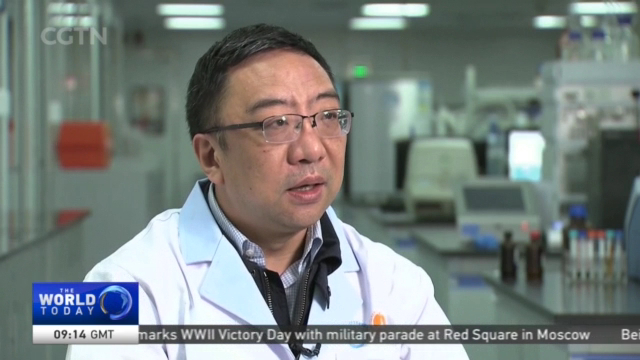
17:41, 09-May-2019
China-UK Microbial Partnership: Medical scientists launch new study on anti-microbial resistance
Updated
17:40, 12-May-2019
03:06

Medical scientists in Britain and China have together launched an innovative new study program, tracking a lethal rise in bacteria that are increasingly resistant to antibiotics. According to the World Health Organization, around 700-thousand people die each year due to drug-resistant diseases. But that number could rise to 10 million deaths a year within three decades unless there's a global breakthrough in the so-called "superbug". Richard Bestic reports from the University of Birmingham in the British Midlands.
Hospitals feature prominently in a global breakdown in the effectiveness of antibiotics. A lethal front line in a battle against drugs resistant bacteria.
For researchers at the University of Birmingham teaming up with Chinese scientists could be a path to turning the tables.
DR. ALAN MCNALLY, DIRECTOR INSTITUTE OF MICROBIOLOGY, UNIVERSITY OF BIRMINGHAM "Really the idea is to try and combat a current real threat in China, but also help us understand how we might combat it before it becomes such a huge problem here in the UK."
In China, an estimated 30 percent of infections in intensive care units due to multi-drug resistant bacteria.
Figures from the Chinese Academy of Science suggesting nearly half the world's antibiotics are consumed in China.
Scientists at Guangzhou Medical University and two other Chinese medical centers joining hands with the British in the world's first international joint venture to identify reasons for the rise of the drug resistant virus in hospitals.
PROFESSOR HUO CHAO GUANGZHOU MEDICAL UNIVERSITY "The British side has a mature gene-sequencing platform, which can be used for rapid detection of resistant strains. With the help of that technology, we can quickly trace where drug-resistant bacteria comes from. So from both sides, technology and the exchange of technicians, it helps a lot."
Both the Chinese and British sides in this three year study will be looking at how and where bacteria breeds and, significantly, how it develops its resistance to antibiotics. Unchecked, bacterias' mutating ability to resist antibiotics, could result in the early death of 10 million people a year by 2050, according to a UK government investigation chaired by economist Jim O' Neil.
JIM O'NEILL, REVIEW CHAIRMAN UK ANTI-MICROBIAL RESISTANCE REPORT "The UK co-operating with important Chinese universities is crucial, because we all deal with each other as human beings around the world, it's crucial that there's more and more collaborative stuff and common interest pursued all over the world."
RICHARD BESTIC BIRMINGHAM "The task of co-ordinating a global response to the anti-biotics crisis is herculean, only overshadowed in the eyes of medical experts by the cost in human lives and economic damage caused should the world community fail. RB, CGTN at the University of Birmingham, England."

SITEMAP
Copyright © 2018 CGTN. Beijing ICP prepared NO.16065310-3
Copyright © 2018 CGTN. Beijing ICP prepared NO.16065310-3